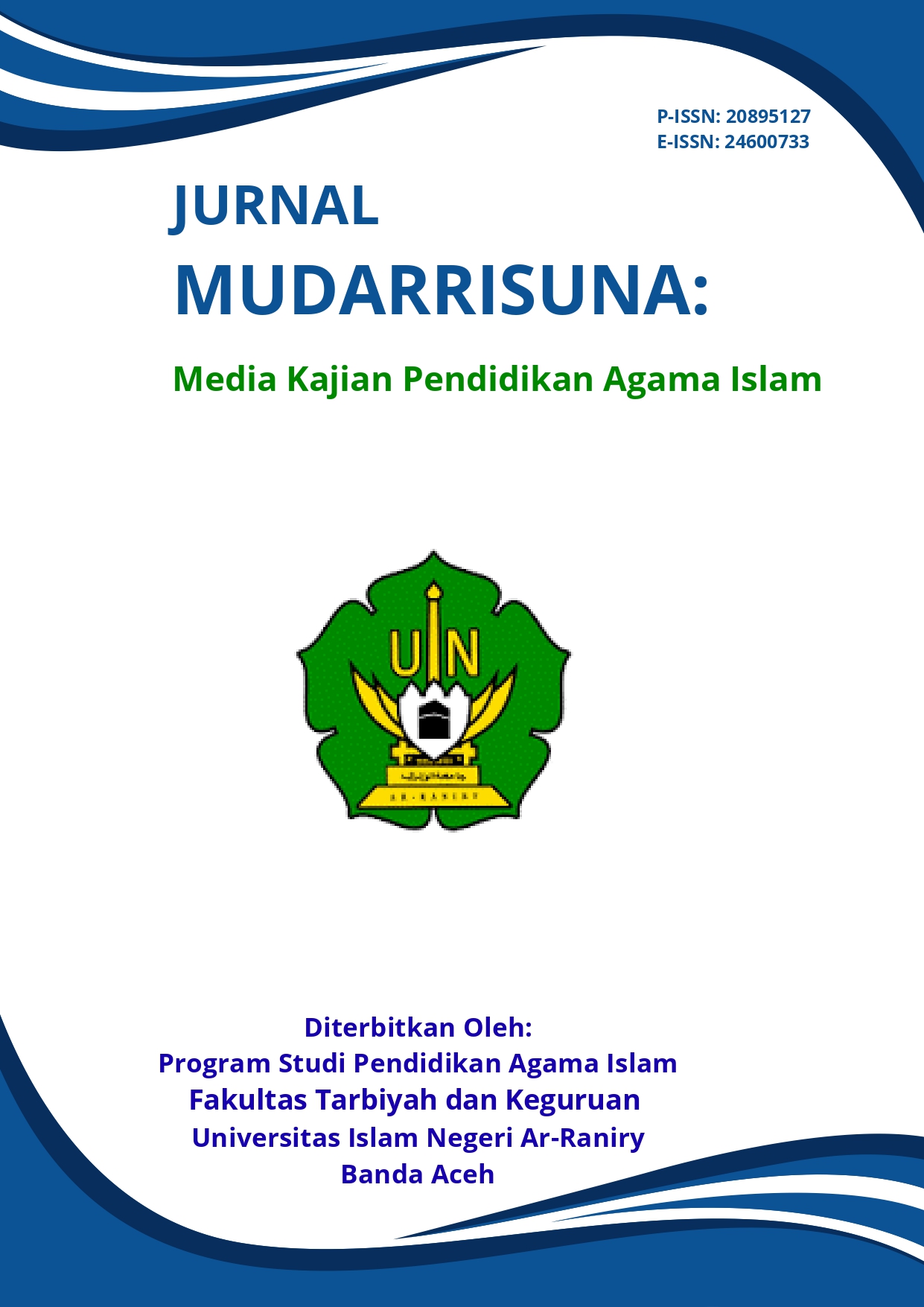Implementation of School Policy in Realizing the Character Education Program at SMA Negeri 1 Kuta Baro Aceh Besar
DOI:
https://doi.org/10.22373/jm.v15i1.28007Keywords:
Implementation, School Policy, Character EducationAbstract
Creating students who have good character is the main goal of national education, and one effort to create this goal is by implementing character education programs in schools. In this case, the school principal as a leader has an important role in taking policies to implement character education programs in schools. The aim of this research is to determine the implementation of school policies in realizing character education at SMA Negeri 1 Kuta Baro Aceh Besar. This research uses a qualitative descriptive approach. Data was collected using observation, documentation and interview methods. Next, the data was analyzed through stages of data reduction and drawing conclusions. The results of this research show that the implementation of school policies in realizing character education at SMA Negeri 1 Kuta Baro Aceh Besar was carried out by involving multi-stakeholders, including teachers, school committees, students and parents. Some of the character education programs implemented at SMA Negeri 1 Kuta Baro Aceh Besar are complete reading of the Al-Qur'an, zhuha prayer activities every morning, congregational zhuhur prayers, Islamic studies, yellow book meudrah, tahsin/tahfiz of the Al-Qur'an , reading Yasin and reading zikr regularly every Friday. The implementation of the character education program at SMA Negeri 1 Kuta Baro is the school's effort to realize Islamic culture in students' daily lives. The program is designed and implemented to support the formation of students' character. The implementation of the character education program as a school culture at SMA Negeri 1 Kuta Baro involves all elements of the school, including teachers and education staff, who play an active role in monitoring and evaluating its implementation.References
Alawiyah., F. (2012). Kebijakan dan Pengembangan Pembangunan Karakter Melalui Pendidikan di Indonesia. Aspirasi Vol. 3 No. 1, Juni 2012.
Doni Koesoema., A, (2010). Pendidikan iKarakter: Strategi Mendidik Anak di Zaman Global. Jakarta: Grasindo.
Indah Lestari & Nurul Handayani. (2023). Pentingnya Pendidikan Karakter Pada Anak Sekolah Khususnya SMA/SMK di Zaman Serba Digital. Jurnal Guru Pencerah Semesta (JGPS) Volume. 1. No. 2, Februari., pp. 101-109.
Rosidatun. (2018). Model Implementasi Pendidikan Karakter. Gresik: Caremedia Communication.
Jaleha, Yuni Pantiwati. (2018). Implementasi Kebijakan Sekolah dalam Menerapkan Pendidikan Karakter Siswa Di MTS Muhammadiyah 1 Tlogomas Kota Malang. Jurnal Kebijakan dan Pengembangan Pendidikan, Volume 6, Nomor 1, Januari. Hal. 101-111. http://ejournal.umm.ac.id/index.php/jkpp
Mariun, Abdul Quddus, and Emawati. (2024). “Analisis Kebijakan Pendidikan Karakter Di Sekolah Dasar”. Risalah, Jurnal Pendidikan Dan Studi Islam 10 (3):997-1005. https://jurnal.faiunwir.ac.id/index.php/Jurnal_Risalah/article/view/945
Moeleong, L. J. (2018). Metodologi Penelitian Kualitatif. PT. Remaja Rosdakarya.
Mujtahid. (2016).Model Implementasi Pendidikan Karakter Melalui Pendidikan Terintegrasi dalam Perkuliahan. Pada iJurusan PAI-FTIK UIN Maulana Malik.
Mustari., M. (2014). Nilai Karakter Refleksi Untuk Pendidikan. Depok: Rajawali Pers.
Shalahudin Ismail, Suhana Suhana, Qiqi Yuliati Zakiah. (2021). Analisis Kebijakan Penguatan Pendidikan Karakter dalam Mewujudkan Pelajar Pancasila di Sekolah. Jurnal Manajemen Pendidikan dan Ilmu Sosisal. Volume 2, Issue 1, Januari 2021.
Sulaiman., D. (2013). “Manajemen Pendidikan Pesantren Modern dalam Pembentukan Karakter Anak”. Jurnal al-Fikrah, Vol. I, No. 2.
Syadidul Kahar. (2021). Sistem Pendidikan Dayah Dalam Membangun Karakter Santri. Journal Continuous Education, 2(1). 17-29. Doi, 10.51178/ce.v2i1.171
Yaumi., M. (2014). Pendidikan Karakter: Landasan, Pilar dan Implementasi. Jakarta: Prenadamedia Group. I
Downloads
Published
Issue
Section
License
Jurnal MUDARRISUNA: Media Kajian Pendidikan Agama Islam allows the author(s) to hold the copyright and to retain the publishing rights without restrictions. Authors who publish in this journal agree to the following terms:
- Authors retain copyright and grant the journal right of first publication with the work simultaneously licensed under a Creative Commons Attribution-ShareAlike 4.0 International License that allows others to share the work with an acknowledgment of the work's authorship and initial publication in this journal.
- Authors are able to enter into separate, additional contractual arrangements for the non-exclusive distribution of the journal's published version of the work (e.g., post it to an institutional repository or publish it in a book), with an acknowledgment of its initial publication in this journal.
- Authors are permitted and encouraged to post their work online (e.g., in institutional repositories or on their website) prior to and during the submission process, as it can lead to productive exchanges, as well as earlier and greater citation of published work.




